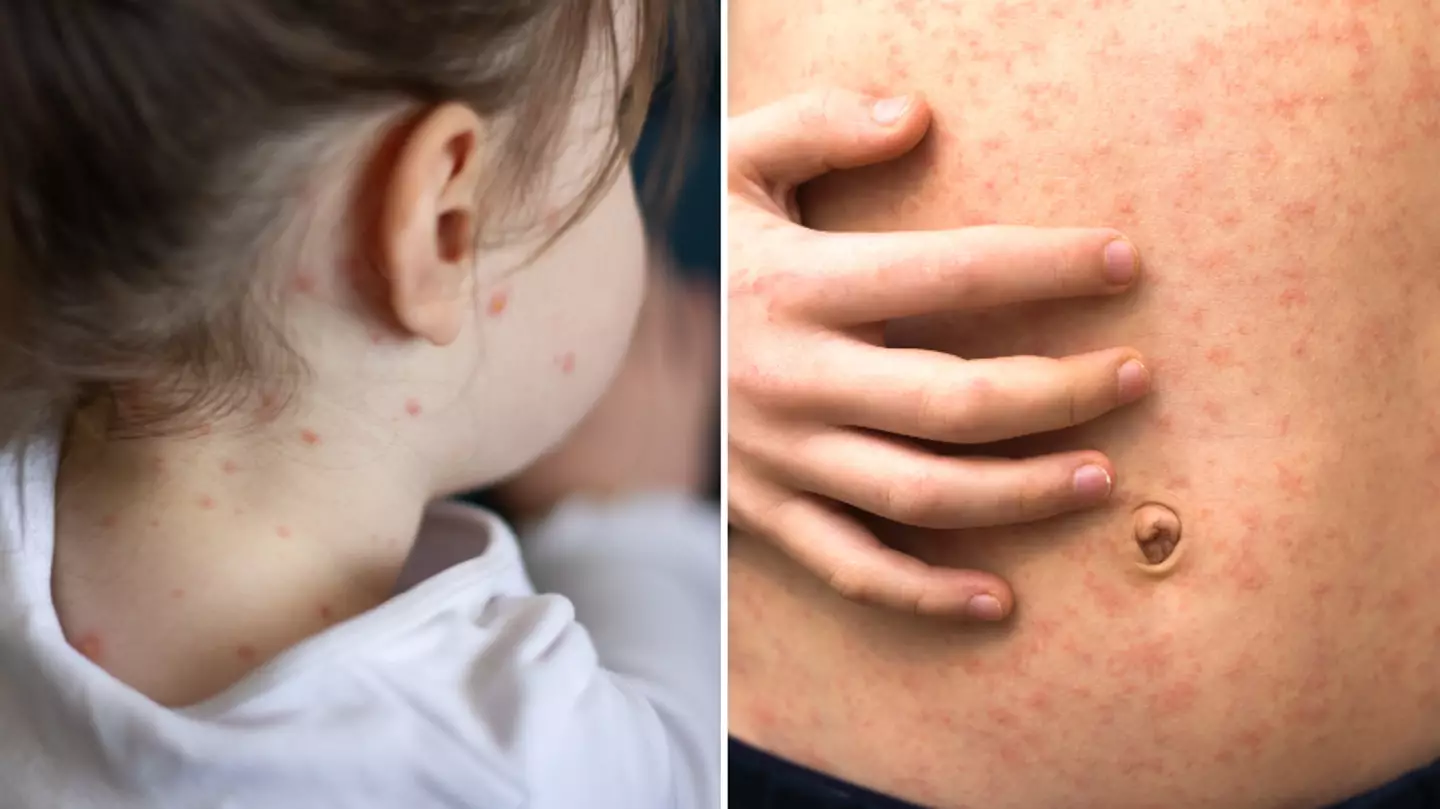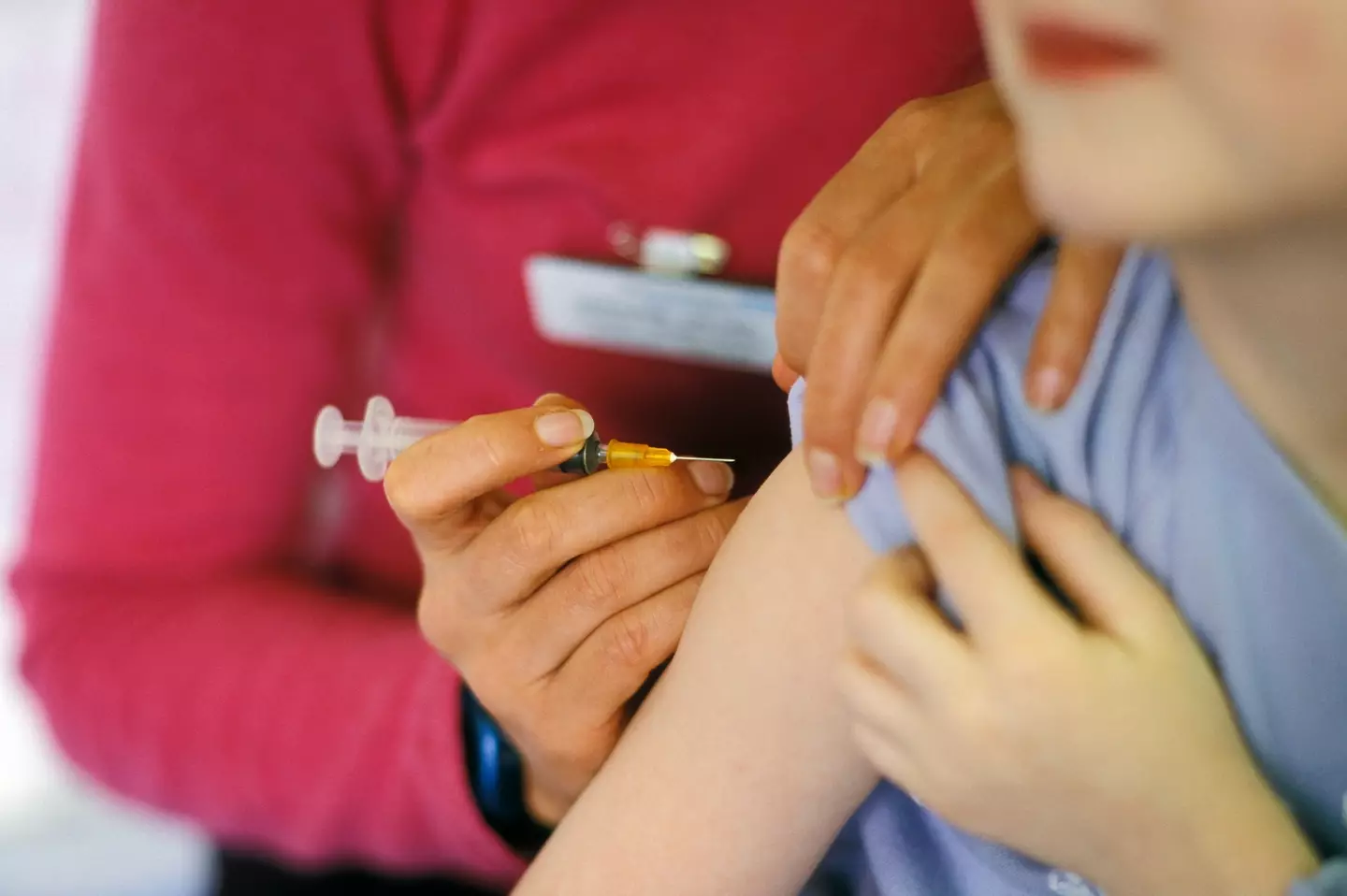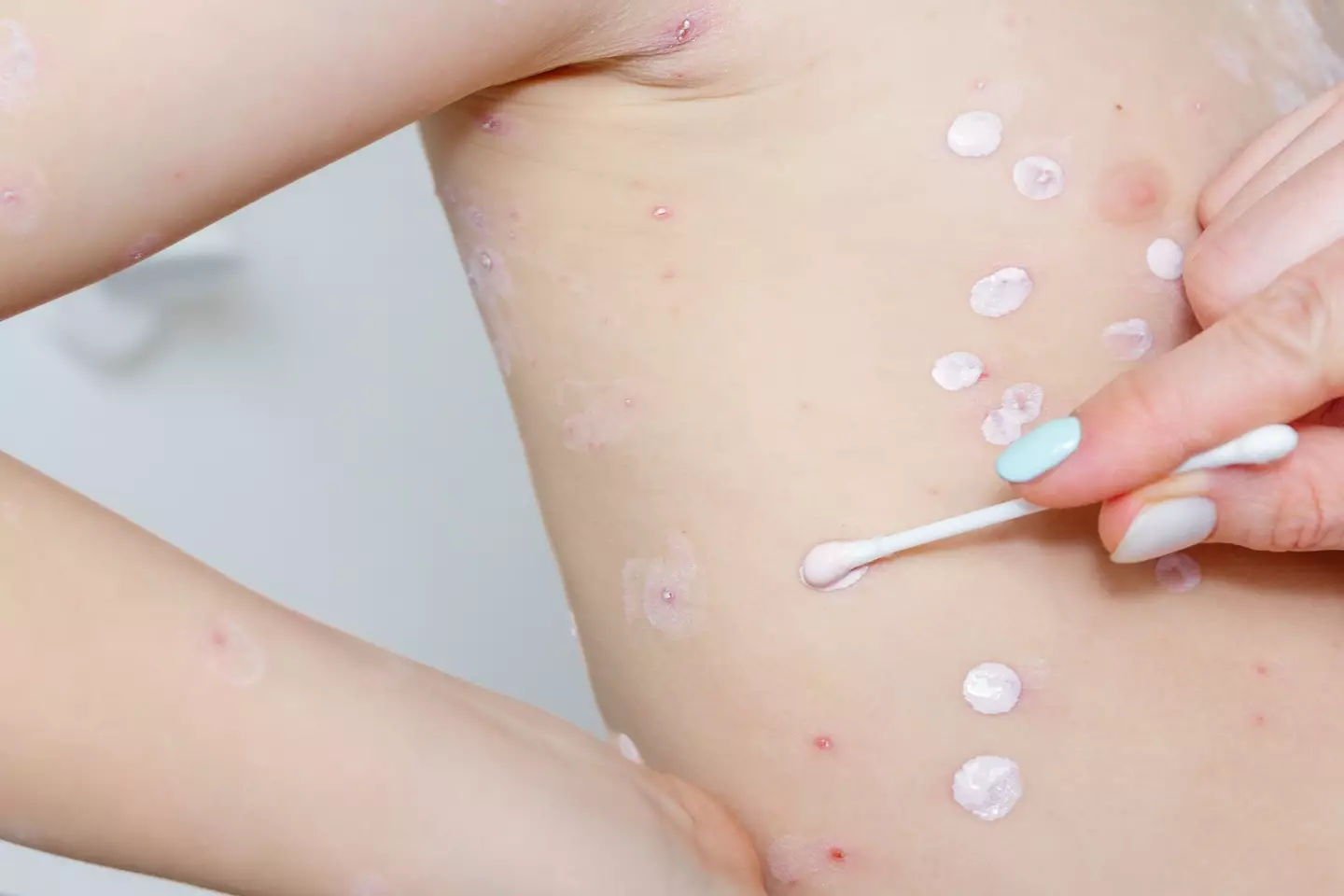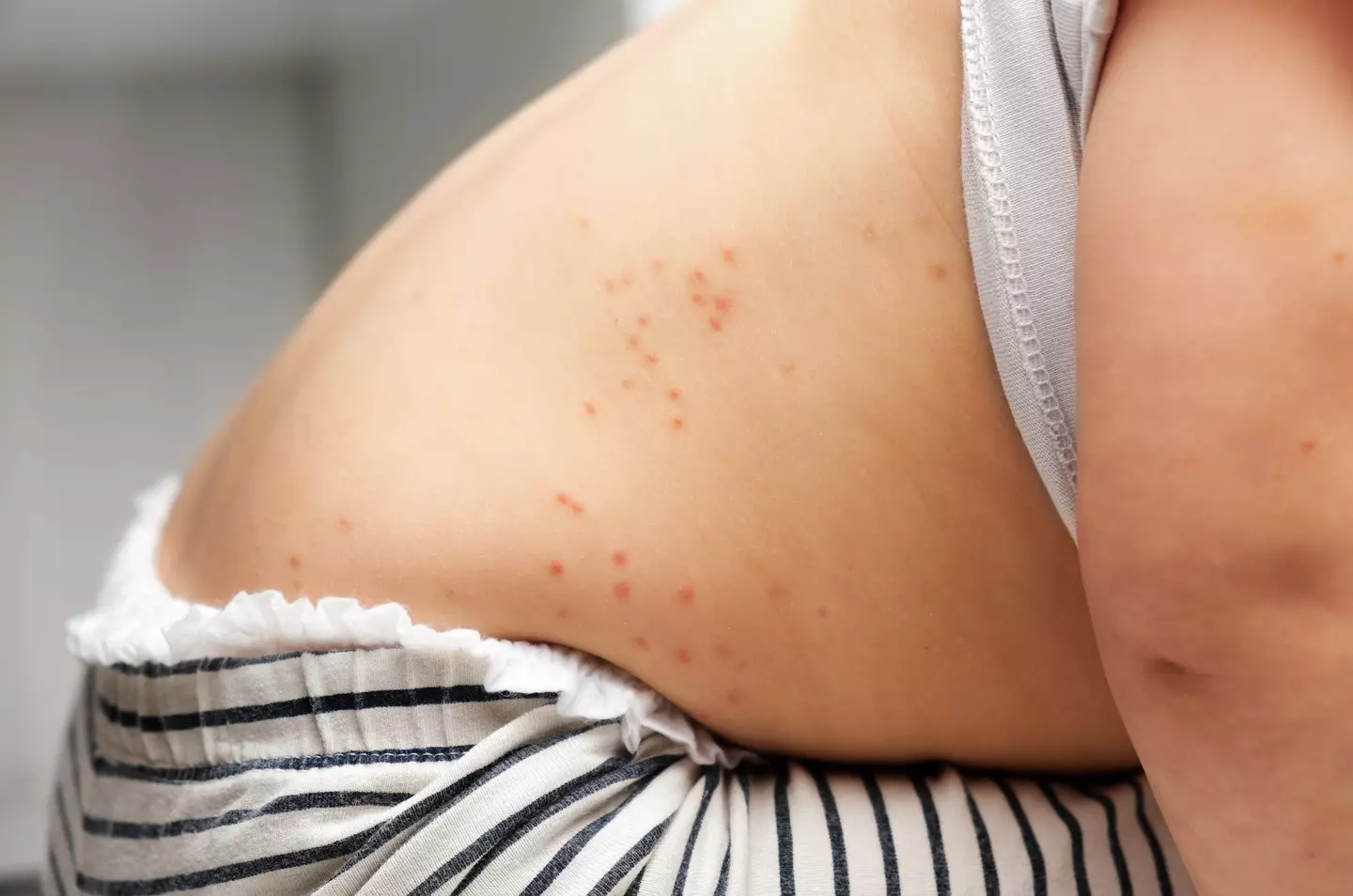
Apparently, it's not just the 'January blues' we've got to battle this new year, after health experts have issued Brits with a warning about an outbreak of measles.
This extremely contagious infection has been somewhat viewed as a 'thing of the past' in recent years, with the majority of people living in the UK at the moment having received the recommended MMR vaccine as a youngster.

The rate in which kids are being immunised by this double-dose jab - which also protects against mumps and rubella - is dropping lower and lower each year, however, which has likely led to a spread of infection.
Advert
In fact, medics at Birmingham Children's Hospital are experiencing they're highest number of cases in years, reportedly treating as many as 50 children in the last 30 days.
There were just 360 instances of measles across the entirety of the UK back in 2021, compared to a colossal digit of 1,603 last year.
The UK Health Security Agency is now urging parents to familiarise themselves with the symptoms of the viral infection being that young children at the most at risk.

Advert
A statement by the body earlier this month reads: "We are currently seeing the number of cases of measles and mumps increasing in all parts of the country. "Measles in particular can be a very serious disease for some children and tragically it can even cause fatalities."
What exactly should mums and dads be looking for in terms of signs and symptoms then?
Well, apparently, the first clue your child could be suffering from measles is if they're exhibiting cold-like symptoms, including a high temperature, a runny or blocked nose, a cough, frequent sneezing, or sore eyes.
However, what distinguishes this infection from the common cold, is that your child will likely bear some white spots on the inside of their mouth.
Advert

They'll also likely exhibit a red rash across their face and body.
When it comes to how you can prepare to treat your tot, there isn't actually much you can do as a parent.
The UKHSA suggests mums and dads first make sure they take their child to see a GP, being sure to keep them hydrated and giving them the child's recommended amount of paracetamol or ibuprofen if they're in pain.
Advert
Ear and eye infections are usually treated with a course of antibiotics, and the NHS advises parents to gently remove any crusts from the eyes using cotton wool.
Doctors are in turn promoting means of preventing infection, with the most effective means of protecting your child reportedly being to vaccinate them.

If you're someone that opted not be be inoculated, however, you can reduce your risk of infection by regularly washing your hands with soap and water, using tissues to catch coughs and sneezes and throwing used tissues straight into the bin.
Advert
Avoiding shared use of items such as knives and forks, towels, clothes and bedding can also prevent infection.